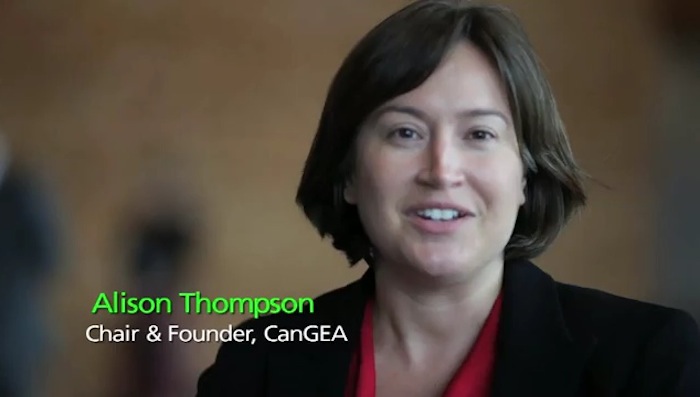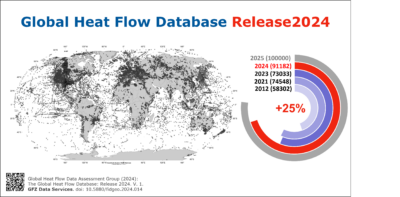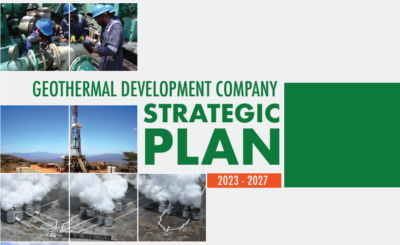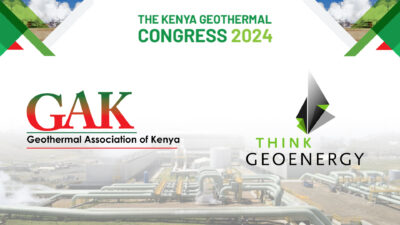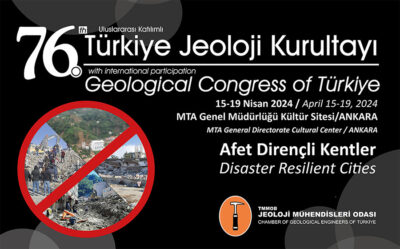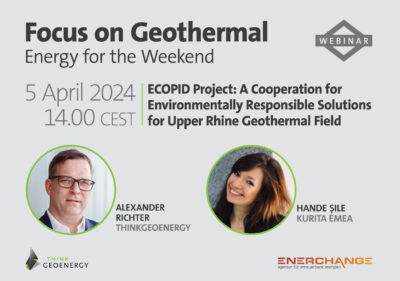Interview series: Alison Thompson of CanGEA
In a series of interviews ThinkGeoEnergy speaks to companies, organizations and industry leaders attending the GRC Annual Meeting and GEA Trade Show in Sacramento in October, starting with Alison Thompson of CanGEA.
As part of its coverage on the GRC Annual Meeting and GEA Trade Show in Sacramento, October 2011, ThinkGeoEnergy is doing a series of interviews with companies, organizations and leaders in the geothermal energy industry who are going to be represented in Sacramento.
I am very pleased to roll of my first interview with the Chair and Founder of the Canadian Geothermal Energy Association, Alison Thompson, who also is the Vice President of Corporate Relations at listed geothermal developer Magma Energy Corp.
Alison has been throughout my work in the industry been a true inspiration in her engagement, passion and incredible energy towards promoting geothermal energy in general and in particularly in the challenging part towards promoting geothermal power development within Canada.
So in an interview I asked her a number of questions regarding CanGEA and the upcoming GRC/ GEA event.
What is the role of the Canadian Geothermal Energy Association (CanGEA) and its key activities?
CanGEA is Canada’s national geothermal industry association with a clear goal to accelerate Canadian exploration and development of geothermal resources. Its key activities include networking and general awareness work to the Toronto Stock and Venture Exchange investment community about geothermal company investment opportunities. It is working hard on establishing the Geothermal Reporting Code to lower investment risk and increase reporting standardization in our industry (a MW is no longer a MW, it needs to be described simultaneously with what level and category of confidence you have) in the numbers provided by developers as the other resource industries are made to do … basically one needs to define the category.
CanGEA also works on a geothermal policy reform and generally on facilitating geothermal development in Canada.
What can the members of CanGEA offer to the geothermal energy industry in the United States?
There is a large pool of skilled talent from the geothermal industry, the oil and gas, as well as the mining industries in Canada. The general background in resource industries provides a unique basis for the the U.S. geothermal energy industry. Furthermore the prowess and experience in the financing of geothermal energy activities through the Toronto Stock and Venture Exchange have provided a clear value for development in the U.S.
What do you consider the key obstacles and challenges for increased development in the U.S.?
There are a number of things holding back increased geothermal development in the U.S. Permitting clearly is a bottle neck and technology limitations, such as drilling cost, discovery/ exploration techniques, and high temperature materials are issues constituting challenges.
Furthermore there is no geothermal reporting code in the U.S, which makes it difficult for investors to compare individual projects. The Canadian use of a Geothermal Reporting Code shows that it is easy to use a code, and increases the ability of an investor to not only compare geothermal companies, but compare them against other investment choices in other resource industries, such as oil & gas and mining. The Code increases the investment pool and avoids “bad actors” that give the entire industry a “black eye”.
What do you think holds back speedier development of geothermal energy projects globally?
Globally, we believe that there is generally a lack in a broad awareness of geothermal energy and its potential. Regulators don´t know enough to expedite approvals for development. The general public doesn´t know enough about geothermal energy to actively choose or demand this important base-load capacity power option over and along other renewable energy technologies. And another important element holding back development is the fact that the investment community is ill informed and the lack of standardization leaves them confused.
What are your expectations for the event in Sacramento?
My expectation is to bring awareness to the need for a Geothermal Reporting Code, how easy it is to use, and what benefits it provides the industry. I would also like to attract interest in the geothermal opportunities in Canada and promote CanGEA as a resource for networking and introduction in the Canada.
I also look forward to reconnect with member companies of CanGEA, and learn about best policy practices from other countries.
The Canadian Geothermal Energy Association (CanGEA): www.cangea.ca
